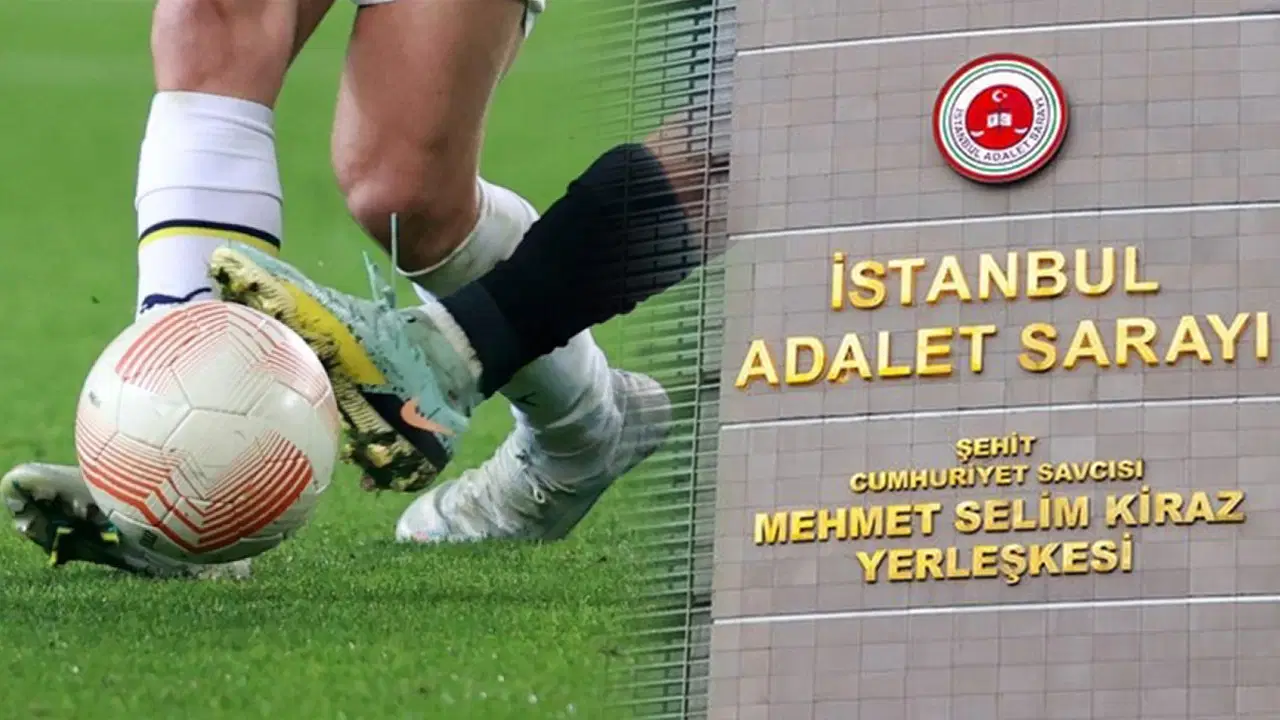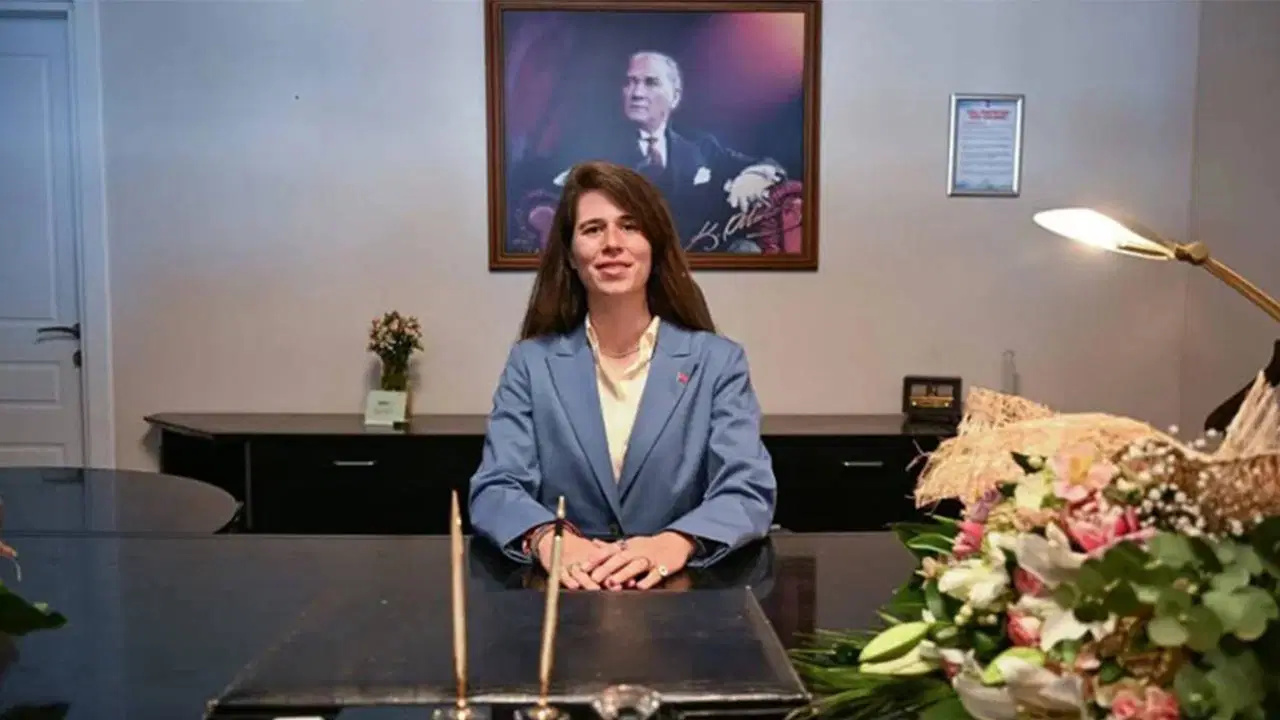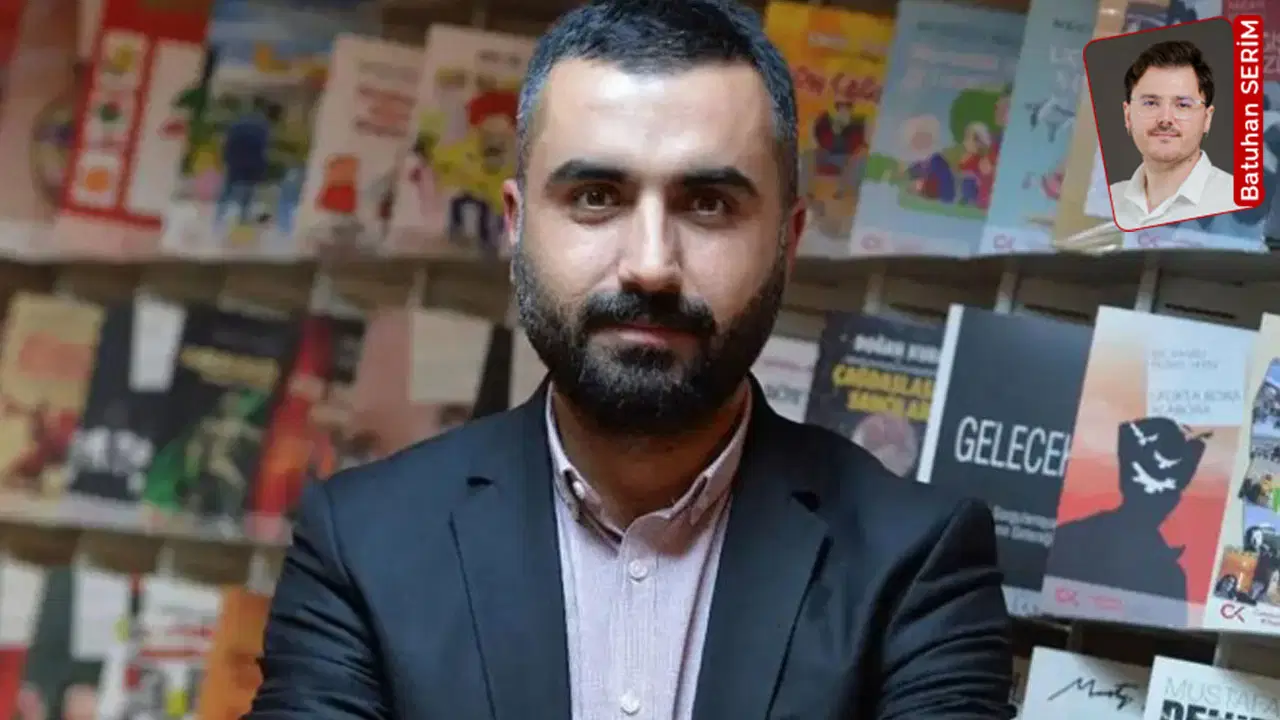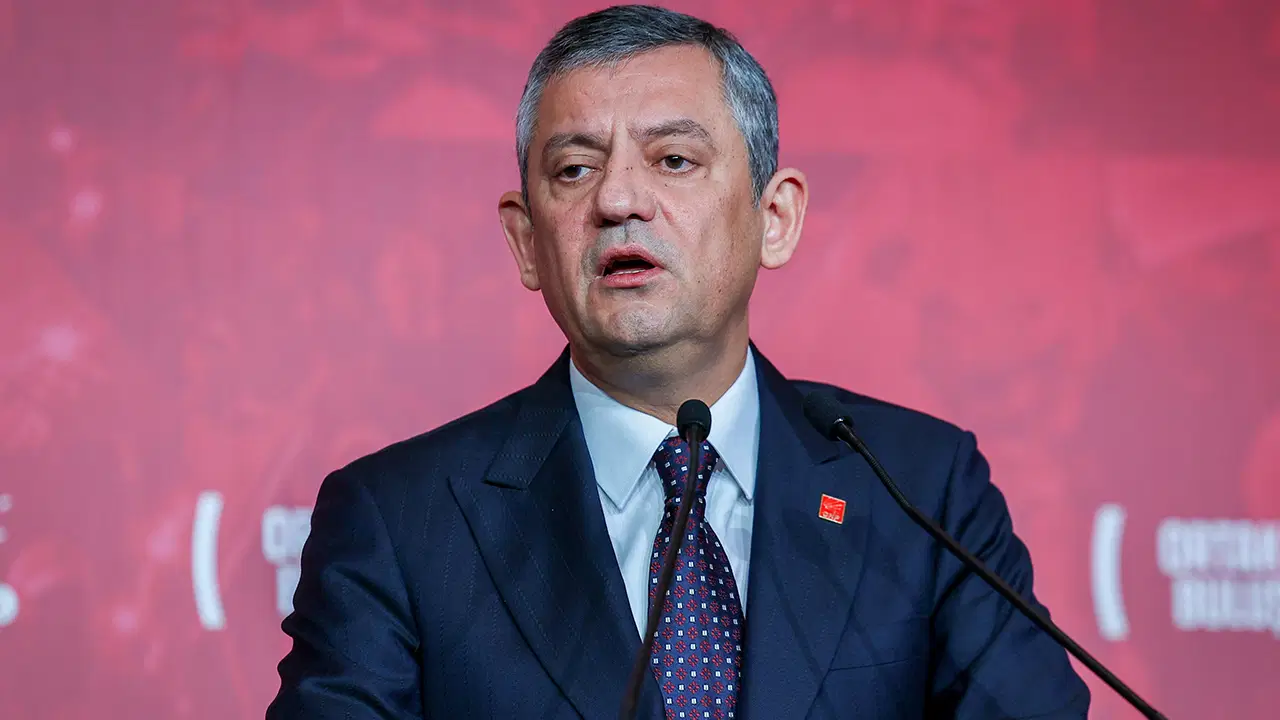
Demirtaş, recounting that they were not unprepared, stated that they were awoken by a phone call from their neighbours at around 01.20 hours in the morning of 4 November and said, “One of our neighbours downstairs called and said the police were coming upstairs. We were all asleep, my husband, I and my kids. I woke my husband and told him the police had come. It was not long before the doorbell rang anyway.”
Başak Demirtaş, speaking to Dicle Müftüoğlu from DİHABER, said, “These days will pass and this unlawfulness can’t continue to this extent. Unlawful methods can’t continue much longer. These are bad times and there is disillusionment with this but I have not lost hope. I also have hope that everything will turn out well. In favour of peace and democracy.”
“If you open the door, we’ll show you."
Demirtaş, saying that after the doorbell rang, they asked who was there but the police officers did not identify themselves and said, “We have come to serve a notice,” recalled, “When we asked what kind of notice, they said it was a notice sent by the prosecution. When we asked, ‘Do you know where you have come?’, they said, ‘We have come to Selahattin Demirtaş’s house and there is a notice from the prosecution. If you open the door, we’ll show you.’”
“If I was going to run away I wouldn’t be waging this struggle”
Demirtaş spoke of the way, having said they would not open the door until the lawyers came, they called their lawyers, and when her husband went onto social media just then they realised that a coordinated swoop was on, and gave the following account of the atmosphere in their home at that time:
“The kids were asleep and we woke them. I had spoken to the kids a few days earlier about the possibility of such an event taking place and tried to prepare them, because we had been in this situation quite a few times of late. The kids had also witnessed this kind of event. I thought I had prepared the kids, but not quite as much as I had supposed. My youngest girl got a bit stressed. She started to cry and I wanted to get them out of the house, but when they didn’t want to go, I decided to let them stay. All the while, the police officers kept on ringing the bell and called on us to open the door. They didn’t want to wait for the lawyer to come. The Co-Chair said, ‘If I was going to run away I wouldn’t be waging this struggle, anyway. I’m here and I need to get ready.’ They kept on harassing us with the bell. There was no threat, but they we constantly pressurising us into opening the door.”
Demirtaş described how, with her husband wanting to see the notice, they opened the door without waiting for the lawyer to come and it was an arrest warrant issued by Diyarbakır Republic Prosecution.
Demirtaş, recounting that only one police officer came inside while her husband was readying himself, explained that he waited at the door and a search was not conducted in the flat.
“They pointed guns at neighbours’ heads”
Başak Demirtaş, describing how a large number of police officers were stationed on every floor of the apartment including the fire escape, said “When neighbours wanted to come out in the realisation that something was going on, they pointed guns at their heads and did not permit them to leave their homes.”
Demirtaş, saying her husband bid farewell and left home once he had got ready and that parting with the youngest girl was tough, explained, “My youngest girl is a child who makes her feelings known. Like every child, she’s fond of her father. She didn’t want to let him go but her dad said that he had to go and would come back later. While saying goodbye to me, he also told me there was nothing to fear. And I said, ‘I’m not afraid, anyhow. Relax.”
“I went through just such a night in 1982”
Demirtaş, recalling how she went through a similar experience when she was five and her father was arrested in a night raid in 1982, continued:
“At the age of five, I experienced what my kids went through. They took my dad away in 1982. We were in Diyarbakır and the police also came in the middle of the night. Of course, we couldn’t make much sense of it at the time. Just that my mum was playing for time so that my dad could get dressed. I remember it. I remember the way my mum stayed calm. Just like I did. (Smiles) This means that people can keep their cool in such situations. Nothing has changed in all the years that have passed.”
Demirtaş, stating that being in the right keeps her strong, stated, “We have done nothing wrong. I know that. My husband has never done anything wrong, either. He has also waged a correct, legitimate fight. So, there is no reason to be afraid and not to be strong.”
“Surprise at the transfer to Edirne”
Demirtaş described their surprise at the choice of Edirne when they had been expecting Kandıra and how the first thing they did was to work out how to get there.
Asked as to the effect on them as a family of her husband’s detention, Başak Demirtaş expressed in the following words that they were not going through anything different from other families, “Thousands or tens of thousands of children are suffering today. Fathers, children, spouses. We are going through precisely the same thing as them.”
Demirtaş, saying that she is the only one in the family who has gone to visit him and neither her husband’s mother and father nor his children have yet paid a visit, added that she reached this decision feeling it would be better for the kids if the first visit took the form of a contact visit.
Demirtaş, noting that they discussed things other than her husband’s prison conditions on the visit, summed up her husband’s conditions as follows, “He is being held on his own. There is ventilation. He uses the ventilation in the daytime. He has applied to share with another remanded MP, Abdullah Zeydan, and is waiting for this. He had had no contact with other political remandees up until then.”
Demirtaş described how she found it difficult to go on the visit but returned strengthened from having done so.
“She sent a blank piece of paper to her dad for him to write back on”
Başak Demirtaş described the excitement experienced at home prior to the phone calls that take place every 15 days under State of Emergency rules:
“Before the phone call, I get together with the kids. Because the times are known, we hold a normal phone call. Of course, we get excited. It hits the kids first the most. In the most recent call – my youngest girl got a letter from her dad, and she said, ‘You wrote a letter, dad, but I can’t read your writing.’ The youngest girl is curious as to the place her dad’s being held in. She tries to form a clear picture in her mind. She says, ‘Will we be able to see when we go?’ She sent her dad a letter along with a blank piece of paper and wrote, ‘Will you draw a picture of your room and send it?’”
Demirtaş adds somewhat emotionally that she has not yet written a letter and was not thinking of doing so.
“Bağlamas flooded into Edirne”
Demirtaş, asked whether the musical instrument known as the ‘bağlama’ Selahattin Demirtaş asked to be sent to him at his first meeting with his lawyer had reached him, said, indicating that the request had been complied with, “Quite a few bağlamas went to the jail straight away. Alevi associations in particular treated this with a lot of importance. You know, the bağlama has a great significance for them. I asked, and they have received one bağlama on the inside and play it from time to time. I said I was expecting some good compositions. And he laughed.”
Başak Demirtaş, explaining that Demirtaş was given five newspapers a day, had the opportunity to watch television and was trying to reply to the letters that came to him, went on, “He is reading novels and poetry books. I took him an Aslı Erdoğan novel last time. I took Mehmet Uzun’s books in Kurdish. He has asked for Kurdish dictionaries, magazines and books. He’s getting on with language study. Large numbers of letters are coming from inside and outside the country, from different cities and different parts of the world.
“A crime is being committed just now”
Başak Demirtaş, talking about the process that saw Selahattin Demirtaş arrested and remanded in custody, said, “Preparations were taken to circumvent solidarity. You know, the internet was shut down to prevent the people from showing solidarity, resistance and support. Even so, the people remain firmly on their feet. I think they are keeping the struggle going over others, and their MPs and the other detained people. They are not able to do much to stop them. There has been no comment over the solitary confinement the MPs are being subjected to, nor can there be. This shows clearly that the matter is not in the hands of prison government and cannot be accounted for in legal terms. He cannot be detained because he is an MP. Everything is unlawful, from his being remanded and taken there to his conditions. A crime is being committed just now.”
“My students are giving me great encouragement”
Başak Demirtaş, who also works as a teacher, indicates that she has also received support and encouragement from her students since the first day. Demirtaş added, “My students are giving me great encouragement. They are being incredibly proactive. Even I am surprised at the strength of their reaction. I mean, the support and encouragement they’re giving comes straight out of their child-like imaginary worlds; things like: ‘We’ll go to Istanbul and rescue him’ or ‘Miss, I’m going to Istanbul in the summer.’ Working helps me a lot.”
Demirtaş, pointing out that attacks were taking place on all sections of the opposition, noted:
“These days will pass and this unlawfulness can’t continue to this extent. Unlawful methods can’t continue much longer. These are bad times and there is disillusionment with this but I have not lost hope. I also have hope that everything will turn out well. In favour of peace and democracy.”
Demirtaş, referring to the duress women and women’s organisations have been under of late, interpreted the remanding of the sturdiest champions of the women’s struggle Figen Yüksekdağ, Ayla Akat Ata, Gültan Kışanak and Sebahat Tuncel as their being “taken hostage” and stressed that women would not retreat in the face of this.
Solidarity call from Kılıçdaroğlu
Başak Demirtaş, stressing that a ring of solidarity had emerged with Selahattin Demirtaş’s arrest, recounted that CHP General Chair, Kemal Kılıçdaroğlu, had conveyed his messages of encouragement by telephone and she had said, “The CHP bears greater responsibility going forward,” to which Kılıçdaroğlu had replied, “Going forward, we will do all we can to bring Turkey out of these dark days and into days of lightness.”
Demirtaş, noting that the ring of solidarity was growing from day to day, said that CHP MPs, their wives and notables from various countries were calling her and unknown passers-by in the street were passing on messages of solidarity.
Demirtaş gave the following description of the most intriguing such event: “A family called from Mersin. They asked, ‘Daughter-in-law, how are the grandchildren?’ This was not a family I knew. Then they got on a bus from Mersin and came to visit us. They said, ‘If you need anything, you just call and ask for it from your mother.’ They sat for an hour and went back to Mersin. I feel invigorated by this solidarity. My husband is the co-chair of a party that got six million votes. Lots of people like him and he’s greatly valued. This is also the source of great strength.”
Demirtaş, saying that the wives of Cumhuriyet newspaper’s remanded journalists have called, indicated that the consensus to emerge from their discussions was that everybody was strong and hopeful, and said, “Because we are all united in our view that our husbands and relatives were waging a most just and legitimate struggle. We noted that we drew our strength and motivation from this.”
Demirtaş pointed out that, even if not yet planned, the families would come together and a united campaign may arise out of this.
“They wanted to undermine his peaceful nature”
Demirtaş, indicating that she had not much followed the news as reported by the media close to the ruling party about Demirtaş and the HDP following 7 June, but had at least come across such things on social media, said that the reporting for the most part targeted her husband’s peaceful nature and was aimed at undermining it.
Demirtaş, stating that her husband had never been in favour of death, said, “On the contrary, he defended life and peace over death. He defended free and democratic living. Just so that people and youngsters would not die, he put his own life on the line and waged this struggle. In fact, he made a speech addressing young people at the Başkale rally saying, ‘Youngsters, don’t die. If anybody is to die, let us die.’”
“We will get through these hard days with solidarity”
As to what Demirtaş had to say about events on her last visit to her husband, she said, “The mining disaster that took place in Siirt Şirvan upset him a lot. He passed on a message about the need for a combining of the grief over Soma, Ermenek and Siirt. Then, the last time I went, Ahmet Türk was under arrest and he was very concerned about the state of his health. Those who stand for peace and democracy will win. We will get through these hard days with solidarity.”















